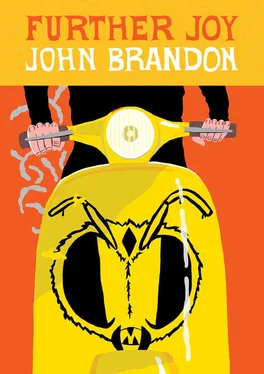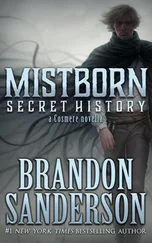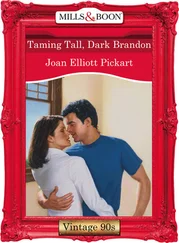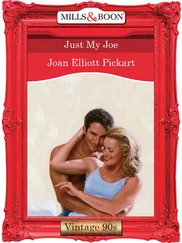“What have you eaten today?” Pauline asked her.
“Eaten?” said Mal. She tipped off the banister stiffly toward Pauline, as if falling, then shot her feet down and landed like a gymnast. “I don’t know. I eat biscuits every morning, then I don’t get hungry again.” Mal gave the ice in her cup one sharp shake, then swished inside, the screen door swatting behind her.
Pauline rose and climbed into Mal’s spot on the banister. She pressed her back against the beam and gripped the railing under her legs. The balcony felt solid enough, though its planks were discolored and warped. After several minutes Pauline grew comfortable with her balance, though she knew she didn’t look at ease, like Mal had. She didn’t look like a wise stray kitten.
Pauline hadn’t had sex for over a year now. She was too picky, was the problem. There was a certain type of guy she was comfortable with, and that often liked her in return — guys who were nowhere near handsome but were cocky anyway due to some offbeat talent they possessed, who were gentlemanly without overdoing it — and that type of guy existed in college towns, not in regular Florida. Those were the guys who hadn’t minded entertaining and winning Pauline, guys who spoke useless languages and played outdated musical instruments. Pauline remembered what it was like to be with one of them, how each hour had seemed unique. They’d been so sweet and honest. They’d been boys, she supposed, not men.
The last night Mal had brought Rick home, Pauline had turned her seldom-used TV up as loud as it would go, blaring a news story about a museum burning to the ground. The noises Mal made were like giggling. His were like someone getting burned by a cigarette.
Mal burst back onto the balcony. “Believe it? I’m officially one hundred percent out of tea. How do I let these things happen?”
Pauline lowered herself from the banister and curled back up in her chair. The heat of the day was taking hold. She could feel sweat trickling down her neck. “Mal, how many friends do you have?” she asked.
Mal’s face went blank a moment. “No close ones, I don’t guess. None like when you’re a kid and you’re friends with someone. Friends like me and you, maybe seven or eight. If I have a friend long enough, I get in a fight with her.”
“Why? What do you get in a fight over?”
“Different things. Usually their boyfriends come on to me. This one dude, I threw a candle in his face, then my friend took his side. Says I could have blinded him.”
“A lit candle?”
“Hell yeah, a lit candle. She said I was jealous of her because she had this great guy, so I was trying to ruin it for her. Meanwhile he’s got a crossed eye. He was part-owner of a roller rink.” Mal crossed her arms. She was wearing a tank top that revealed the flat bones of her chest. “She said I was always flirting, even if I wasn’t trying to. The way I bop around and, you know, look at people. Maybe she’s right.” She bit the inside of her cheek. “Do you think she’s right?”
“I don’t know,” Pauline said. “Look straight at me.”
Mal arranged her face over-seriously and rested her eyes on Pauline. It certainly wasn’t flirty. Mal wasn’t blinking; she was waiting for some sort of verdict. And as Pauline looked back at her, thinking of what to say, she began to suspect that the face Mal was making was Pauline’s face, that she was unconsciously mirroring Pauline.
***
Pauline had been so happy, a year ago when she’d finished college, to find a pocket of the Florida peninsula that had not yet been subdivided and sodded, a swampy area with no easy access to a beach or to Disney World. She’d wanted a bold move, a move she wouldn’t have expected of herself. She’d wanted an escape from the familiar, a place where she could find something out about herself. Her friends from school had gone back to their hometowns and were predictably stepping into the molds of their young-adult lives, and Pauline was here, in Palatka, with no one to catch her if she faltered. She was proud of this original little life she’d forged, proud to have a consistent freelance job that paid the bills and then some, but whatever test she’d been hoping for hadn’t arrived. She felt more capable than when she’d moved here, but nothing important about her had changed. She was the person she’d always been — cautious, a judger of character and debunker of myths.
And what of Palatka? It was less a town, more a tangle of numbered roads lined with lethargic trailer parks and dusty farmhouses. The daytime was uneventful, and most people stayed in at night because there was nothing lurking out there but trouble. Pauline’s apartment was one of eight in her building, only two of which were rented — hers and Mal’s. The whole row was on stilts. The apartment, if she looked too closely, was shabby, but it was a big space for one person, and out the windows she could see the sun rising and setting. Out the windows there were mucky cypress bogs, and in the near distance a strip mall that contained a tidy thrift store and a low-rent lawyer’s office. A little farther off was a field of soybeans in perfect rows. And beyond all that was an unlabeled water tower, painted a pale yellow, peeking up over the treetops.
Pauline finished the work her company had sent her around midday, and then began feeling generally anxious for reasons that were hard to narrow down. She put in a hairclip, slipped her flip-flops on, and drove over to the outlet mall. This was another thing that hadn’t changed about her — when she felt anxious, shopping helped. She waded inside with the old women, who all wore sweaters against the pumping chilled air. She passed a shop for kitchen gadgets and a discount store for bras, then wound up walking into a depot for outdoor gear and drifting to a huge bin marked LIQUIDATION. She picked through all variety of backpack, fishing vest, and cozy hat, then turned the price tag on a pair of men’s boots: WAS $230.00 / IS $19.99 . The boots were bulky and sleek at once, seasoned-looking yet pristine, rugged yet soft as a cloud. They were from Italy. She could smell the boots’ neutral scent — the odor of a very clean and organized workshop. She hung them over her arm by the laces and started looking around for the registers.
From the mall she followed a two-lane highway in the approximate direction of St. Augustine. Through many forks and hard turns, the road remained the same number. After about fifteen minutes she crossed a short bridge and pulled into the lot of a restaurant with stuffed macaws in the windows and glazed tile on every interior surface. There was a bar in the middle of the room, and Pauline chose a stool and nursed a beer. A television hung from the ceiling on a complicated stand. The sound was off and the man on the screen was reviewing something — horror movies, it seemed — and making a show of being despondent. The bartender, a middle-aged woman wearing big pastel bracelets, had her mixing tools out and was polishing them with vinegar. Pauline had been served by this woman before, had made small talk with her before.
“Would you mind turning that TV off?” Pauline asked.
“They won’t let me. I can turn it around for you, so it’ll face the other way.” The bartender stood on her toes and nudged the TV over and over until Pauline was looking at the back of it, with all its plugs and bolts. “You don’t like that guy who’s on?”
“I’m not used to TV anymore,” Pauline said. “It seems aggressive.”
“Where you been that there’s no TV?”
“Just my apartment, I guess.”
The bartender tilted her head, appraising Pauline. “I’ll tell you a secret, honey. You’re never going to fit in around here. You’re not white trash. That’s the main reason your experiment’s going to fail.”
Читать дальше












